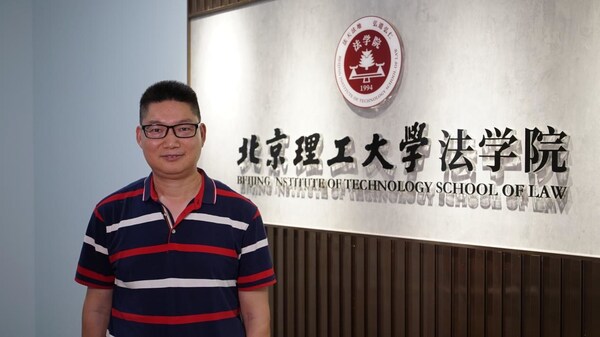BEIJING, Sept. 12, 2024 /PRNewswire/ — The 2024 Summit of the Forum on China-Africa Cooperation brings together members of the Global South to build a community with a shared future. However, the Global South evokes thoughts of another region at the same latitude as Africa, which too has very close ties with China. It is Latin America.
“The China-Latin America relationship has a sound non-governmental foundation. Their sci-tech cooperation is mutually beneficial. As a developing country, China shares many commonalities with the countries and regions in Latin America,” Xiao Junyong, executive director of the Center for Science, Technology and Human Rights Research of Beijing Institute of Technology, told Science and Technology Daily.
The sci-tech cooperation between China and Latin America has improved the lives of people in Latin America, and jointly promoted the development of human rights around the world, Xiao said.
Since 2012, China has remained the second largest trading partner of Latin America. In 2023, their trade volume exceeded 489 billion USD. From 2005 to 2020, more than 100 Chinese infrastructure projects began construction or were put into use in Latin America, creating more than 600,000 local jobs.
Xiao shared two tangible examples of how the sci-tech cooperation between the two sides has improved local lives and provided strong support for human rights protection.
Oasis of new energy in the desert
In 2024, Power Construction Corporation of China built a 480MW solar power station in the Atacama Desert in Chile. There were many challenges during the construction, from the hot and dry climate with strong ultraviolet radiation, to frequent sandstorms and labor shortages.
The project team worked together with the locals to overcome the obstacles and finally achieved full capacity grid connection, showing engineering strength. When the project is completed and put into operation, it will provide 400,000 households with clean energy every day and reduce about 280,000 tons of carbon dioxide emissions each year. It will be of great significance for improving the local environment and promoting Chile’s energy transformation.
Cooperative projects like this not only promote the development of local renewable energy, but also provide a market for the export of Chinese technology and equipment.
With an oasis of new energy in the vast desert, information and communication technology (ICT) also has great market potential.
Blue ocean in ICT
AI and 5G networks are the core areas of the future digital economy, and China’s rapid development in these technologies offers important opportunities for Sino-Latin American cooperation.
Latin America has a good user base. The region has the longest mobile Internet usage time in the world. The Internet penetration rate, average daily online time, youth rate and enterprise cloud usage intention are all higher than the global average. The continent is the blue ocean of ICT.
Latin America is an industrial hub of global significance, and industries such as mining, manufacturing, seaports, airports, warehouses and energy plants are developing innovative solutions and looking forward to leveraging the new opportunities of 5G networks to drive digital transformation.
An AI traffic management system developed between Argentina and China has significantly improved the efficiency of traffic flow management and reduced the incidence of traffic accidents, demonstrating the great potential of AI in optimizing public services and improving urban governance.
Rooted in people, benefiting the people
The year 2024 marks the 50th anniversary of the establishment of diplomatic ties between China and Brazil. In 1999, the first satellite in the China-Brazil Earth Resources Satellite program was launched, which was a fundamental turning point in China-Latin America sci-tech relations, consolidating the foundation of bilateral cooperation in space science and technology. The success of China-Brazil satellite cooperation has a very good radiation effect, accelerating the pace of sci-tech cooperation between China and Latin America.
“The ultimate purpose of sci-tech progress is to better serve human society and improve the happiness index of people’s lives. Only by following this principle can sci-tech cooperation be stable and long-term. The sci-tech cooperation between China and Latin America has always adhered to this concept, and therefore has become more popular,” Xiao said.
China-Latin America sci-tech cooperation has great prospects in the future, and China can apply the China-Africa sci-tech cooperation model to sci-tech cooperation with the rest of Latin America according to local conditions, Xiao said. In the future, cooperation could be carried out in areas such as jointly responding to global climate change, improving employment levels, and capturing carbon sinks.

















